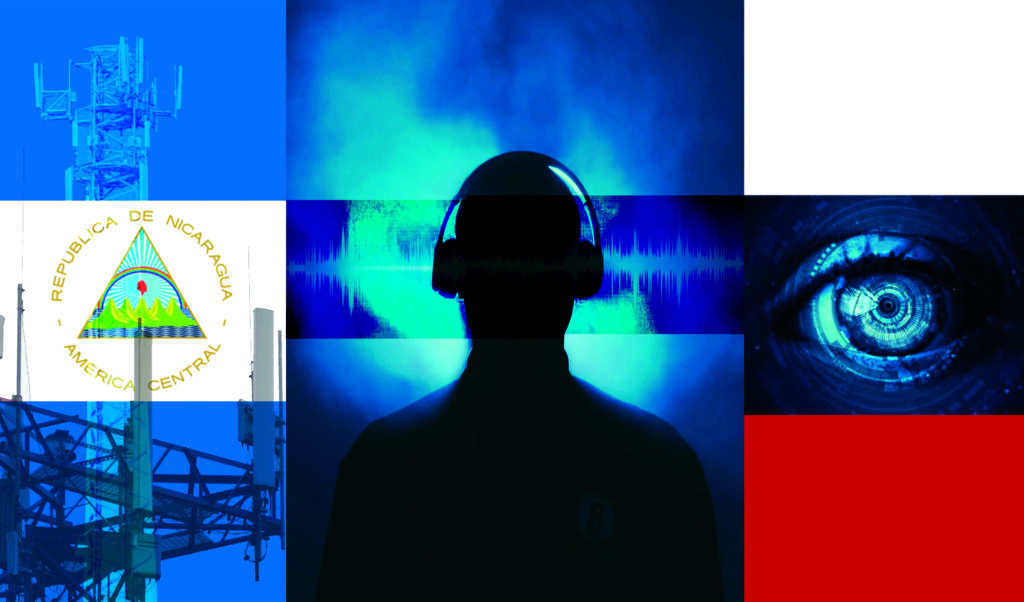The Daniel Ortega-Rosario Murillo regime in Nicaragua and Russia, through their alliance, carry out an ongoing “intelligence offensive” against opponents, free thinkers, and embassies by way of a Russian espionage center that operates in a Nicaraguan Army military base, Nicaraguan investigative news site Confidencial indicated in a recent report.
“The Russian center is operating to carry out cyber espionage. In the interrogations, some of those detained by the dictatorship are told about their phones being tapped and their WhatsApp account hacked, which were intercepted in some way from the military base,” Eliseo Núñez, a former lawmaker of the Nicaraguan National Assembly and political exile, told Diálogo. “This center operates with very high-level officials and with great protection.”
Russia uses the Nicaraguan Army’s military base located on the Mokorón hill as a coordination center, but there are eight other tracking points throughout the country with Russian antennas and equipment that, according to sources, were installed in various bases in mid-2017. Russian officials are the only ones who control and manipulate the antennas and equipment, as well as the information obtained, while Nicaraguan officials are limited to guaranteeing “security” at the base, Confidencial reported, according to sources who had access to the military base.
“We are concerned about Russia’s role […], especially what it is doing in Nicaragua,” Eric Jacobstein, deputy assistant Secretary in the U.S. State Department’s Bureau of Western Hemisphere Affairs, told Voice of America on September 6. “I wouldn’t say it gives more power to the Ortega-Murillo; I think it rather demonstrates the desperation of the regime.”
The Mokorón base also houses the Nicaraguan Army’s Military Intelligence and Counterintelligence Directorate (DICIM), which processes data received via a radiolocation and radio direction finding system to locate telephone, television, or radio signals within the radioelectric spectrum, Italian news agency Agenzia Nazionale Stampa Associata (ANSA) reported on August 26.
“Intelligence and counterintelligence carry out internal surveillance within the Army. In addition, they have the conditions to manage and control all the [Russian secret service web sites], which are in different embassies around the world,” Nicaraguan Major (Ret.) Roberto Samcam said on Nicaraguan platform La Mesa Redonda. “The main concern of these dictatorships is that the rmy could become a factor of destabilization and eventual fall of the regime. The greatest surveillance, although it may seem difficult to understand, is within their own ranks.”
The Ortega-Murillo regime frequently highlights the military support it receives from Russia. During his speech on September 3, prior to the military parade commemorating the 45th anniversary of the founding of the Armed Forces, Ortega reiterated Russia’s support with modern weaponry, Argentine news site Infobae reported.
“We understand that all the counter-intelligence work is being done by the Russians in Nicaragua, not by the people of the Army or the Police,” Núñez said. “There are people who have been detained just for speaking ill of the Russian ambassador in some newspaper article.”
The Ortega-Murillo regime is further strengthening is security ties to Russia. In early September, Laureano Ortega, son of Ortega and Murillo and special representative for Russian affairs, headed the delegation that visited Sergey Shoygu, secretary of the Russian Security Council, in Moscow. His agenda focused on security cooperation due to alleged “color revolutions” in Nicaragua, the Ortega-Murillo regime said in a statement, EFE reported.
The color revolutions were a series of non-violent political protests that took place in the former Soviet states against authoritarian regimes, seeking to establish Western-style liberal democracies.
In late September, the Ortega-Murillo regime was able to get approval for the incorporation of the State Duma (Russia’s legislative assembly) and the Council of the Russian Federation as a Permanent Observer State in the Central American Parliament (Parlacen). Although this regional body is not a high-impact decision-making body, Nicaragua Investiga reported, Russia committed to “cooperate” with an annual contribution of $350,000.
In casting his vote against Russia’s incorporation to Parlacen, Salvadoran lawmaker David Reyes, said: “To allow a country that threatens freedom to become an observer in this Parliament is to accept, implicitly, that the freedom of the people can be negotiated or subdued by force. If we tolerate that freedom being taken away from others, how long will it take for it to be taken away from ourselves?”
Source link : http://www.bing.com/news/apiclick.aspx?ref=FexRss&aid=&tid=6763b410e2f544e8b523776fac39bfba&url=https%3A%2F%2Fdialogo-americas.com%2Farticles%2Frussia-operates-spy-center-in-nicaragua%2F&c=3686782812726349943&mkt=en-us
Author :
Publish date : 2024-11-25 00:13:00
Copyright for syndicated content belongs to the linked Source.
